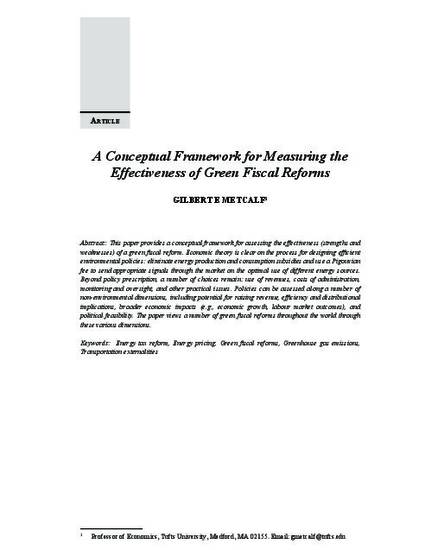
Article
A Conceptual Framework for Measuring the Effectiveness of Green Fiscal Reforms
International Journal of Green Growth and Development
(2016)
Abstract
This paper provides a conceptual framework for assessing the effectiveness (strengths and weaknesses) of a green fiscal reform. Economic theory is clear on the process for designing efficient environmental policies: eliminate energy production and consumption subsidies and use a Pigouvian fee to send appropriate signals through the market on the optimal use of different energy sources. Beyond that policy prescription, a number of choices remain: use of revenues, costs of administration, monitoring and oversight and other practical issues.
Policies can be assessed along a number of non‐environmental dimensions including potential for raising revenue, efficiency and distributional implications, broader economic impacts (e.g. economic growth, labor market outcomes), and political feasibility. The paper views a number of green fiscal reforms throughout the world through these various dimensions.
Keywords
- Climate Change,
- Green Tax Reforms,
- Fiscal Reform
Disciplines
Publication Date
2016
Citation Information
Gilbert E. Metcalf. "A Conceptual Framework for Measuring the Effectiveness of Green Fiscal Reforms" International Journal of Green Growth and Development Vol. 2 Iss. 2 (2016) p. 87 - 126 Available at: http://works.bepress.com/gilbert_metcalf/112/
